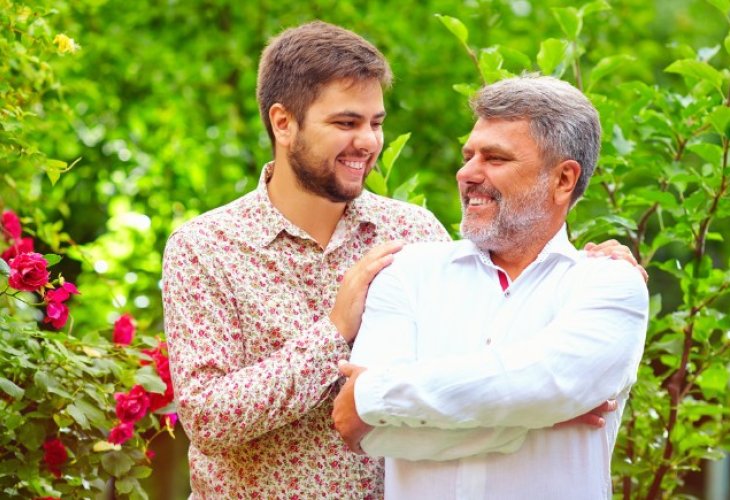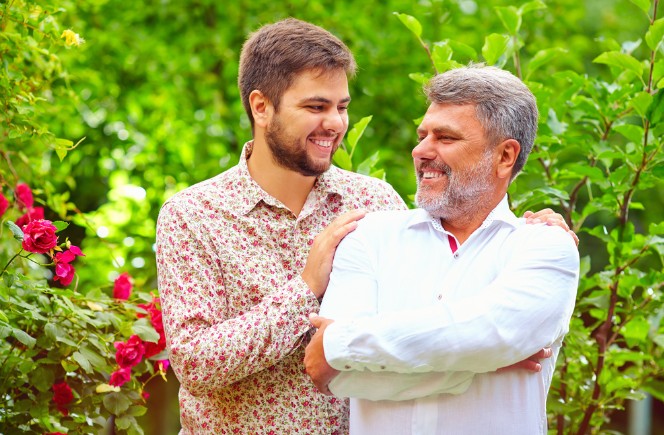Jewish Law
Honoring Parents: 15 Timeless Laws of Love, Respect, and Gratitude
How honoring parents reflects honoring God — through thought, speech, action, and lifelong devotion

Rabbi Avraham Danzig, author of the classic Chayei Adam, codified many practical laws of Jewish life. In section 67, he outlines the laws of honoring one’s father and mother (Kibbud Av Va’Em), one of the most fundamental mitzvot of the Torah. His rulings are frequently cited in the Mishnah Berurah and later halachic works.
Following are fifteen key teachings from Chayei Adam on this central mitzvah:
1. The Commandment’s Weight
“If one has a father or mother, he must strive to serve their needs, for this is a Torah commandment — one of the gravest and most important.” (Jerusalem Talmud, Pe’ah 1)
2. Reverence and Honor
A person must honor and fear (revere) his parents greatly, for the Torah equates parental honor and awe with honor and awe of God Himself.
3. Three Partners in Creation
God, the father, and the mother are partners in bringing a person into the world. The Sages teach: “When a person honors his father and mother, God says, ‘I consider it as though I dwelt among them and they honored Me.’”
4. Love and Respect
One must love his parents as himself, for they are included in “Love your fellow as yourself.” Yet their love is likened to the love of God that is deep and unconditional. Failure to honor them can bring harsh decrees, for their honor is as God’s honor.
5. Rejecting False Logic
Chayei Adam harshly condemns those who claim they owe no gratitude to their parents because “they acted for their own pleasure.” He writes: “May their mouths be silenced! Whoever denies the kindness of his parents will eventually deny the kindness of the Creator.”
6. Honor in Thought
The first form of honor is mental: “He must esteem his parents in his heart as great and distinguished, even if others do not see them that way.” This internal reverence is the essence of kibbud horim.
7. Honor in Action
One must serve parents with both body and property — feeding, clothing, and caring for them with joy. If he gives them delicacies but shows them a sour face, he is punished. But even if he toils physically for them yet speaks gently and respectfully, he gains the World to Come.
8. Honor in Speech
If one needs something done and knows it will be done out of respect for his father, he should say: “Do it for my father,” so that the credit and respect go to his parent.
9. Honoring After Death
Honor continues after a parent’s passing. Within 12 months, one says, “My father, my teacher — may I be an atonement for his resting place.” After 12 months, one says, “May his memory be for a blessing.” Reciting Kaddish is also part of honoring deceased parents.
 (Illustration photo: shutterstock)
(Illustration photo: shutterstock)10. Standing in Their Presence
A child must stand up fully when a parent enters the room — from the moment they are visible until they sit or pass out of sight. Some say this obligation applies twice daily; others say even 100 times if needed. If parents waive their honor, the child is exempt — but it is still praiseworthy to stand.
11. Married Women
A married woman’s obligation to her husband takes precedence over her duty to her parents. If helping her parents causes strife at home, she is exempt. However, if her husband does not object, she is fully obligated in honoring her parents. A divorced or widowed woman must again honor her parents as before. If her husband is abroad and she has time, she should visit or send help to her parents.
12. Even the Elderly Must Honor Parents
Even someone who is elderly and has children of his own must continue to honor and revere his parents and rise before them.
13. Educating Children
Even young children must be trained to honor their parents — to rise before them, avoid sitting in their place, and not interrupt them.
Parents should not waive their honor, so children grow accustomed to this mitzvah.
14. Adopted Children
Even a child given up for adoption must honor his biological parents, even if they did not raise him. Similarly, a child who never knew his father must still observe mourning laws and say Kaddish when the father passes away.
15. The Obligation of a Mamzer
Even a mamzer (child born from a forbidden union) must honor and fear his parents, “even if his father is wicked or a habitual sinner.”
This teaches that the mitzvah of honoring parents transcends circumstances of birth or behavior.
The Chayei Adam paints kibbud av va’em as an act of profound love, gratitude, and holiness — one that mirrors the relationship between man and God. Through honoring parents in thought, word, and deed, a person honors the Divine presence that gave him life.

